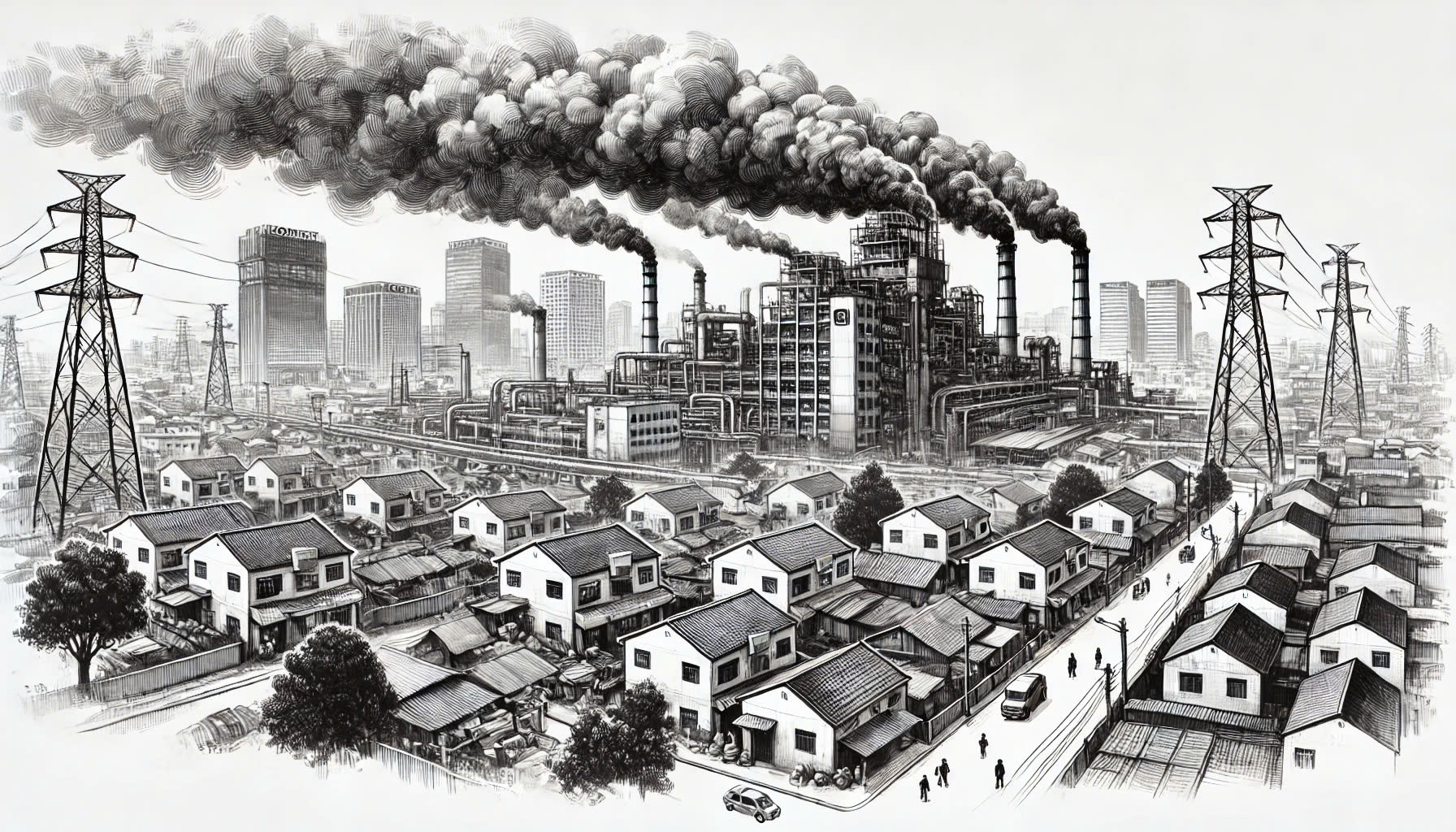Hanoi struggles to relocate polluting factories
Hanoi has made efforts to relocate industrial factories which play the key factor in polluting the air but there remains challenges facing the city.
THE HANOI TIMES ─ For years, the air in the Hanoi metropolitan area has been polluted by industrial factories. Despite efforts to relocate them to the suburbs and neighboring provinces, many of them still exist in the city.
What is the story behind this issue? Let's find out in today's Words on the Street.

In early March 2025, residents of Mai Dong Ward in Hoang Mai District once again had to contend with choking smoke from the Hanoi Industrial Textile Corporation.
Founded in 1960, the company is one of the capital's oldest factories. Its operations have long been a source of frustration for residents due to air pollution and wastewater discharge.
Smoke from the chimneys regularly blankets the area, especially during the dry season when there is no rain to wash away the pollutants. Recently, the situation has worsened, with foul odors wafting through the air and growing public anger.
The Hanoi People's Committee has ordered the company to cease operations and move out of Mai Dong Ward in Hoang Mai District before September 2025.
The public has welcomed this decision as a strong step towards making Hanoi a greener, cleaner, and brighter city.
Pollution from industrial facilities is not a new problem in Hanoi. Since the 1990s, when Vietnam began its economic reforms, the city has experienced rapid industrial growth.
Many factories were built in urban areas without having to comply with strict environmental regulations. Over time, as the population grew and urbanization expanded, these facilities became surrounded by densely populated neighborhoods.
The proximity of factories to residential areas has led to serious environmental and health concerns. Any error in production management can result in catastrophic damage from chemical leaks and material spills.
One major disaster occurred on August 28, 2019, when a massive fire engulfed a 6,000-square-meter warehouse at Rang Dong Light Bulb and Thermos Company in Ha Dinh Ward, Thanh Xuan District.
The fire forced the evacuation of nearly the entire neighborhood. Hundreds of firefighters and 50 fire engines worked through the night to contain the blaze.
The situation became even more serious when it was discovered that 480,000 fluorescent bulbs containing highly toxic liquid mercury were among the burned products. Local authorities had to warn residents against eating any vegetables, fruit, poultry, fish or pork raised within a one-kilometer radius of the factory for 21 days.
The need for relocating hazardous facilities
These environmental incidents reinforce Hanoi's longstanding policy of moving polluting factories out of the city center. While these factories once played an essential role in the capital's socio-economic growth, it is time for them to make way for community-focused development.
Since the early 2000s, Hanoi's People's Committee has sought to relocate polluting factories to suburban industrial zones. In 2015, the city listed 117 facilities for relocation, including the Hanoi Industrial Textile Corporation.
More recently, Hanoi announced that nine factories must leave the city by 2026, including Thang Long Tobacco Factory, Sao Vang Rubber Factory, Hanoi Soap Factory, Habeco Brewery, Vietnam News Agency Printing and Trading Company, and Gia Lam Railway Factory.
But things haven't moved very fast. Many factories have not yet relocated for various reasons, including disputes over valuable urban land.
A major reason for the delay in relocation is the prime location of these factories. Most of them were state-owned enterprises established decades ago and given preferential access to land. Today, these "golden plots" are highly valuable real estate.
For years, these companies have generated passive income from their land assets, especially as the private sector has grown and made competition for state-owned enterprises tougher.
Many believe that the companies are reluctant to move for fear of losing their land and its associated benefits, as well as significant rental income.
Thang Long Tobacco, Hanoi Soap, and Sao Vang Rubber on 275 Nguyen Trai Street, known as the "Cao-Xa-La" zone, are cases in point.
Another reason for the delay is the lack of well-developed infrastructure in suburban industrial zones. Without strong financial support, tax incentives, and land policies, enterprises are unwilling to relocate.
Hanoi must overcome these challenges to accelerate the relocation of factories. It is difficult, but not impossible.
Authorities must identify the root causes of relocation delays. If companies are deliberately stalling for business reasons, strong legal action should be taken.
However, if the delays stem from genuine financial and logistical challenges, the city should work with business leaders to find solutions that balance the interests of the government, businesses, and residents.
The health and quality of life of Hanoi's nearly ten million citizens cannot continue to be compromised by business interests. More importantly, the city cannot sacrifice its environment for unsustainable economic growth.
If not addressed, the consequences could be severe and affect future generations.
To become a model of sustainable urban development, Hanoi must take stronger action to restore clean air in the capital.












